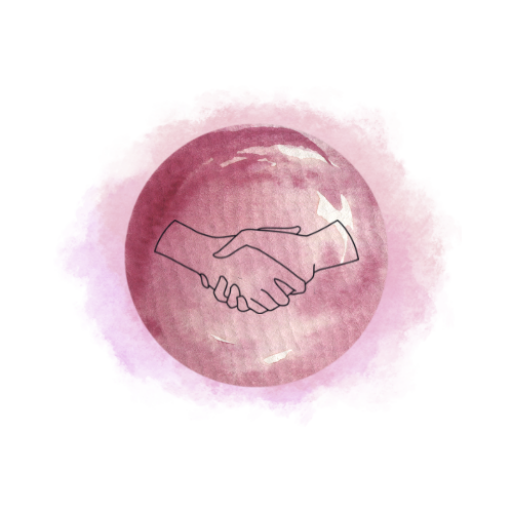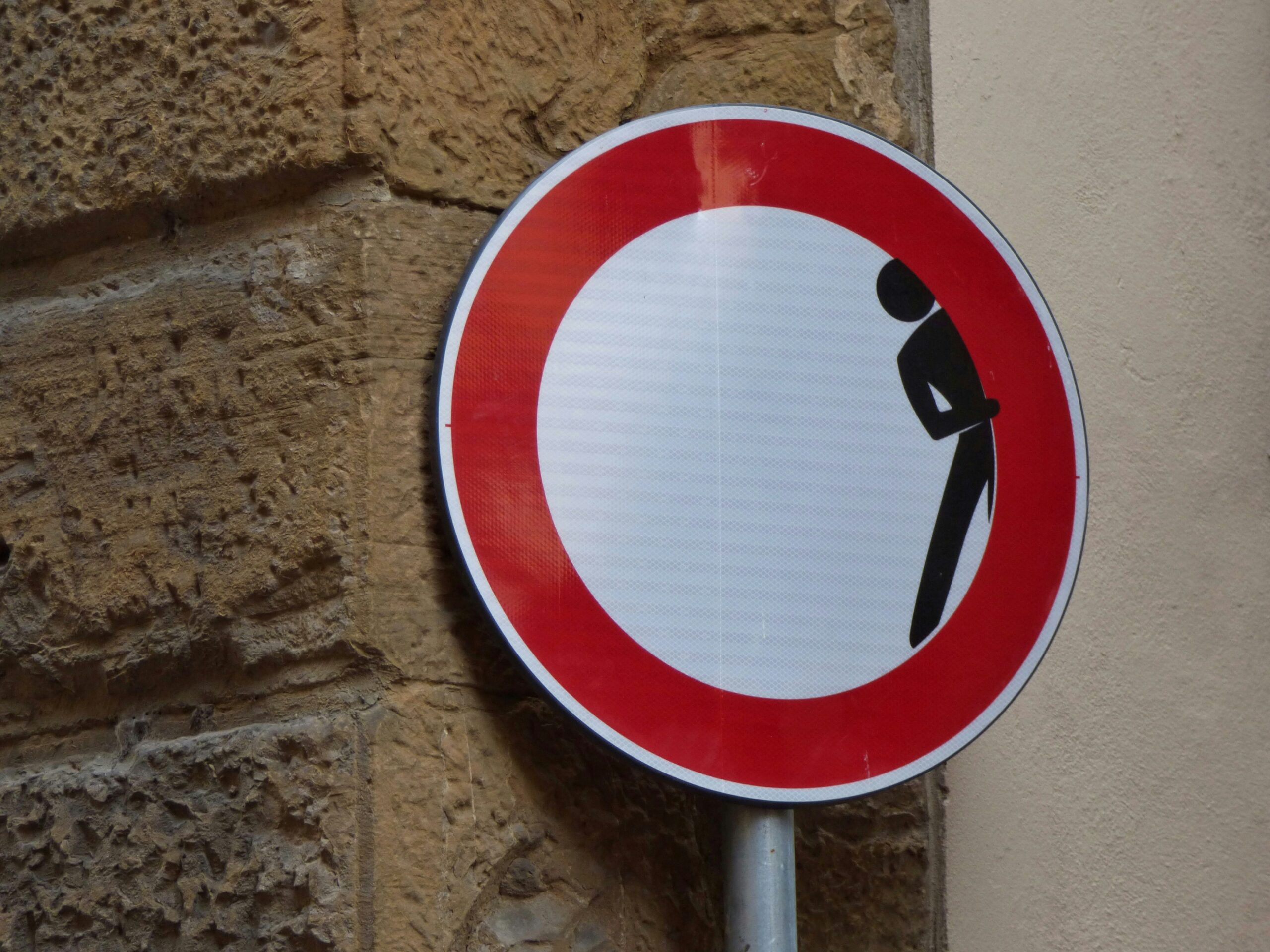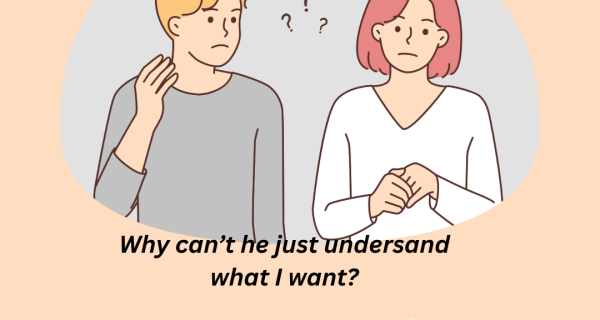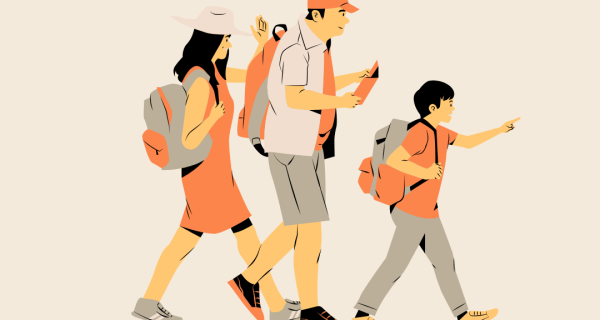You feel like you’re stuck – like there’s no good option, no way out, or you’re unable to make a decision? It feels like you’re frozen — too anxious to take action.
You postpone making a decision. You wait and hope that the right solution will come at the right time. But that might make things worse — certainly not better.
People might get angry with you. Your self-esteem suffers. All your usual resources — the old ways of coping — seem to be gone.
You feel the pressure, but all you want is to avoid it. You just want the problem to disappear so you can go back to living your life.
But here’s the thing:
Feeling stuck might actually be a good thing.
I know — you’re probably thinking, “She can’t be serious.” How could a conflict possibly have any positive side?
What Feeling Stuck Is Really Telling You
I strongly believe that our symptoms — if we embrace them — can help us navigate difficult times.
They’re like a kind of road map.
If you pause for a moment and take a deeper look at them, you might start to understand why they’re showing up in the first place.
What Might Be the Reasons for Feeling Stuck — and What Are the Options?
If you’re feeling exhausted, burned out, with no energy or motivation — it could be a call to rest and take a moment to reflect on what truly matters to you.
- If you feel anxious or indecisive — maybe it’s a nudge to finally feel what you’ve been avoiding:
a conversation about how you’ve been hurt, a reflection on your unmet needs, or a confrontation with a reality that no longer aligns with your values or dreams? - If you feel irritated or angry, but don’t really know why — perhaps there’s something you need to grieve: maybe your dream job isn’t as fulfilling as you’d hoped, maybe moving abroad turned out to be less glamorous than expected, or maybe becoming a parent means realizing — painfully — that you can’t have it all?
- If your old coping strategies just don’t work anymore — it might be a sign that you’ve outgrown an old version of yourself.
Habits and beliefs that once helped now create more friction than support.
This could be a deeper, internal conflict between two core values (capacities) — one that’s been echoing since childhood and is finally asking to be re-evaluated.
So here is the summary:
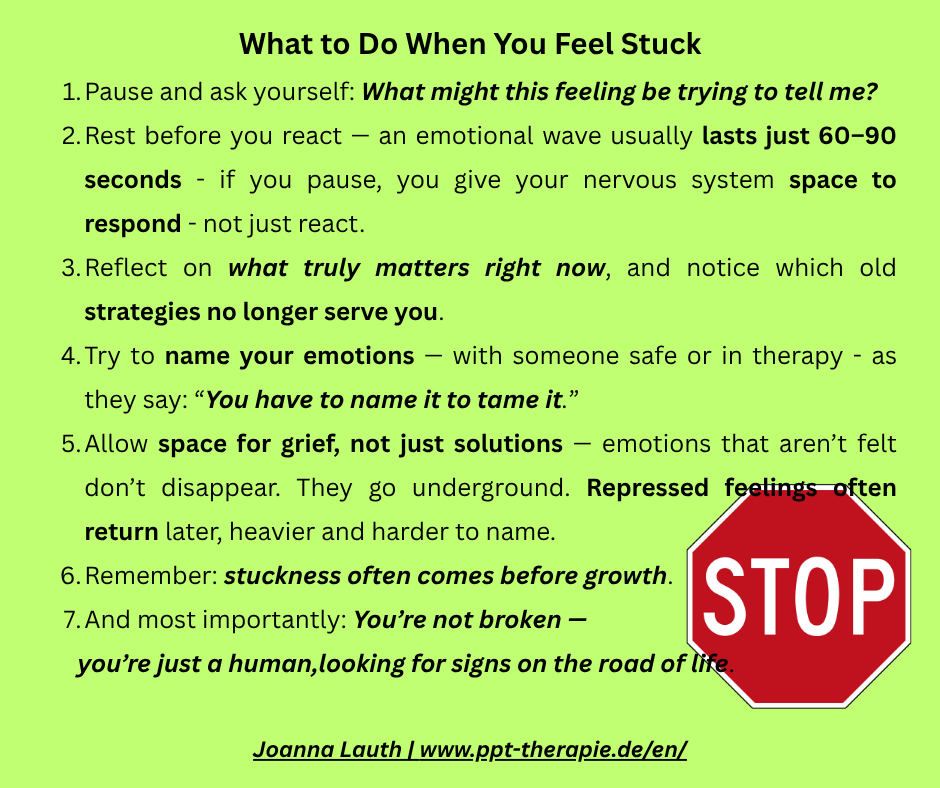
Can therapy help you when you feel stuck?
Therapy isn’t a place where someone tells you which road to take.
It’s where you unfold your inner map, gently explore the parts that feel lost, and begin to understand the signs along the way — with a therapist walking beside you.
A therapist can help when you’re having trouble naming your emotions or finding new coping strategies, while also reminding you of the resources you already have within you.
What might your “stuckness” be trying to protect you from? What would happen if you listened to it, instead of fighting it?
If you feel ready to explore that question with someone by your side,
I’m here — and we can take the next step together.
If this speaks to you — I’ve created a free worksheet to help you reflect on your emotional balance and how energy flows across the four dimensions of life.
It’s called:
🌿 “Four Dimensions of Well-Being & Conflict Reactions”
Just send me a message at info@ppt-therapie.de, and I’ll happily share it with you – sometimes, even a small tool can bring clarity.
If you have any questions, doubts, or concerns, don’t hesitate to reach out.
I’ll take the time to listen — and together we can decide whether therapy feels like the right step for you, and whether I’m the right person to support you.
You’re welcome to get in touch at 0160-91130624, by email at info@ppt-therapie.de, or via WhatsApp.
Since I don’t offer therapy covered by statutory health insurance, we can explore the possibility of setting up an individual fee arrangement.
In some cases, it may also be possible to receive partial reimbursement through supplementary insurance.
Joanna Lauth
Positive and Transcultural Psychotherapy
